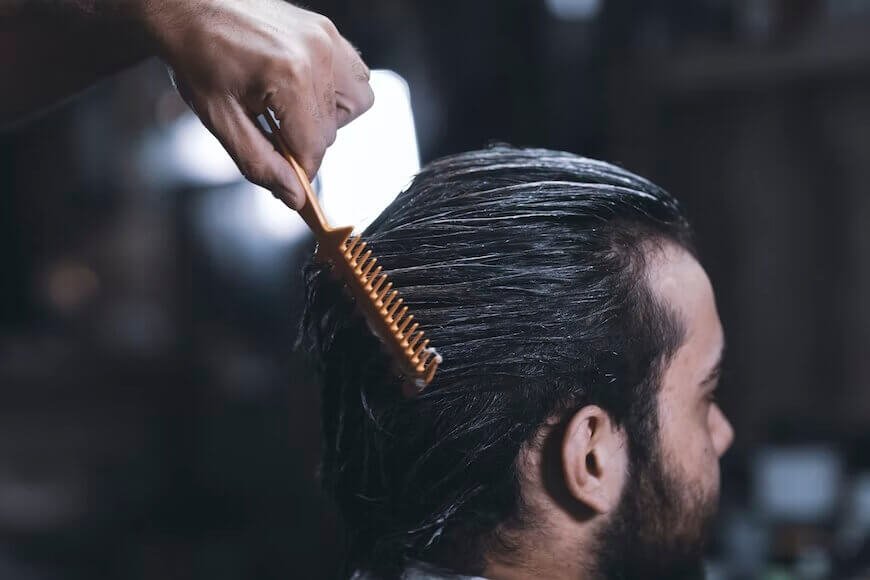Because a lot of people are suffering from hair loss today, the number of hair transplant procedures across the globe has increased significantly. Unfortunately, not a lot of people are aware that once you get a hair transplant, there are certain rules that you have to follow in order to increase the odds of new hair follicles to stick around, which is why you should consider doing some of these things.
Downtime is essential
After you happen to get a hair transplant, the most important thing you should do is to give yourself some downtime, especially in the first 24 hours. During that time, you should avoid all activity, and bed rest is the best thing you can do.
After the first day, you can resume some normal activities, but consulting with the doctor beforehand is recommended. More often than not, the doctor will recommend another day of no activities, and after that, you can slowly insert activities that are not strenuous.
Hair transplants today are very effective.
Avoid strenuous activities and exercise
As we already mentioned, strenuous activities and exercise of any kind should be avoided. By most recommendations, this should be avoided for at least 72 hours, but if you take even more downtime from such activities, you can expect better results from your hair transplantation procedure.
Doctors actually recommend no exercise for at least two weeks. In fact, they recommend doing any kind of activity that would make you bend your waist, run, or do sit-ups and push-ups. Any kind of activity that would increase your blood pressure, especially on the scalp, can lead to sweating and thus having a negative effect on the hair transplant procedure.
Do not rush to wash your hair!
One thing that you must avoid completely, especially in the first 72 hours, is washing your scalp. Washing your scalp puts the results of the procedure at risk, and all the work that the surgeon did might be wasted as the new hair follicles will be washed out.
Even after the period of 72 hours, you should not use any shampoo. Instead, you should spray water to your scalp only, but not directly from the showerhead. It is best if you put some clean water into a bottle and spray it on your head as a mist.
Depending on the type of hair transplant procedure you have undergone, you might be incentivized by the surgeon to keep the area moist with by spraying it with a water bottle every few hours. Of course, before you do this, ask your surgeon if it is necessary to do so.
Do not use headwear
While this might be a bit of an obvious tip, we feel like we should still say that you should avoid any kind of headwear. Do not wear any hats, bandanas, or anything else in the first seven days. After a week, if you really have to, you can wear headware, but it should be loose-fitting.
Avoid alcohol and nicotine
Because of the impact that alcohol and nicotine have on the blood, they should be completely avoided during your recovery period. The reason to avoid alcohol is that it thins the blood, nicotine effects blood pressure, and it also decreases blood flow.
Prevent yourself from scratching your head
According to the majority of patients who have undergone a hair transplant procedure at the hair loss clinic in Melbourne, one of the hardest things to avoid during the recovery period is to prevent yourself from subconsciously scratching the itching spots on your scalp.
Scratching can ruin the hair transplant by pulling the new hair follicles out, and while you will have scabs on your scalp, you should just let them be and let the healing process to be completely natural. It is always good to keep your hands occupied, so you do not scratch your head.
Avoid sunlight
While getting some sunlight from time to time is recommended for a healthy person, those who have undergone hair transplantation want to avoid it as much as possible. The reason for avoiding the sun is that it will make the itching and scabs that form on the scalp even worse, and it could also cause precancerous mutations, especially if the sun is strong.
It is ideal if you avoid the sunlight completely during your recovery period, but you should avoid it for at least two weeks, at least direct sunlight where the rays would hit the area where you have received new hair follicles.
You will notice new hair growing within a week or two after the procedure.
Final word
While recovering from a hair transplant procedure is probably not that exciting, it is nothing that cannot be managed. If you are looking forward to gaining hair in an area that you did not have before the procedure, that alone should motivate you to stick to all the strict rules related to the recovery part of the procedure.

